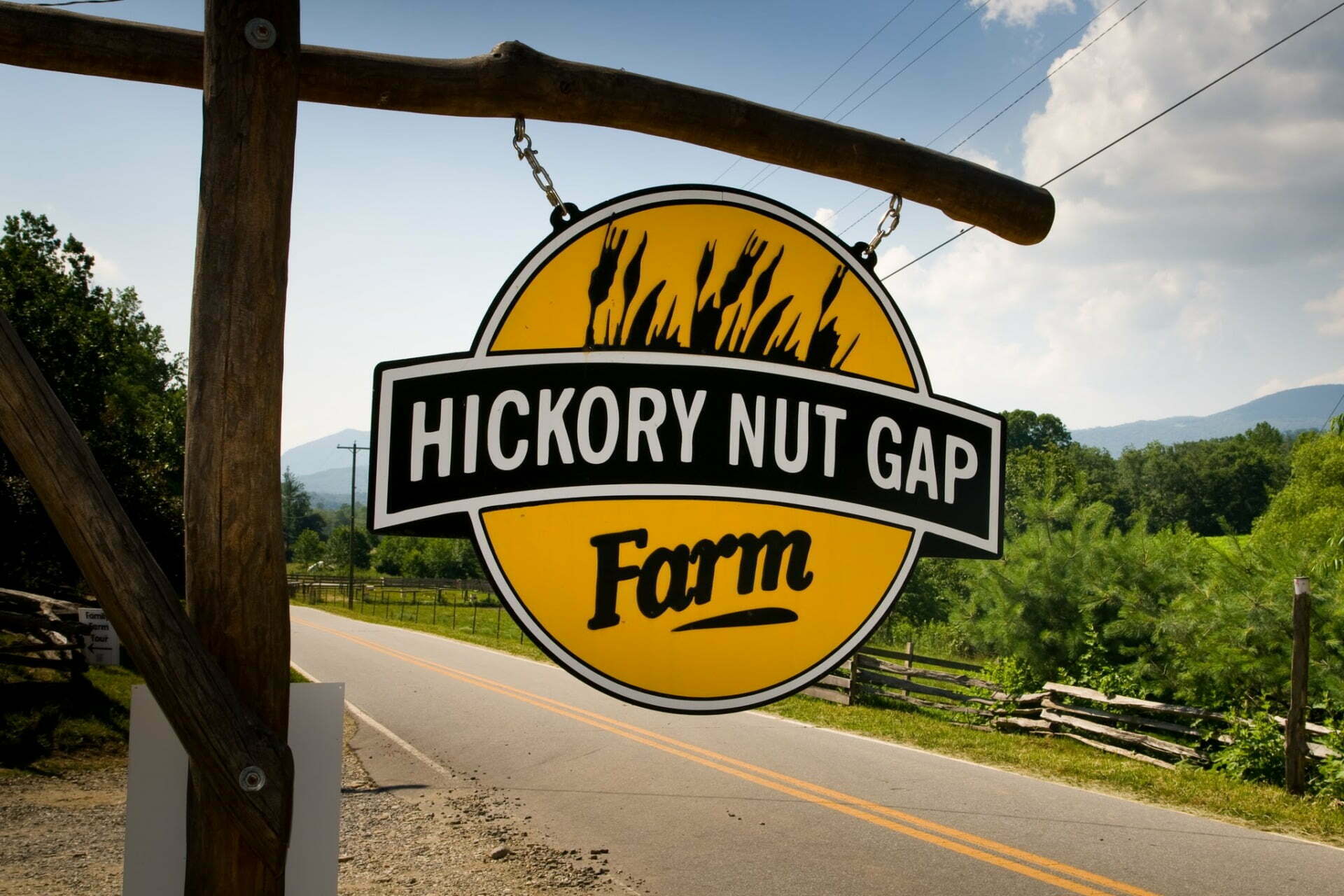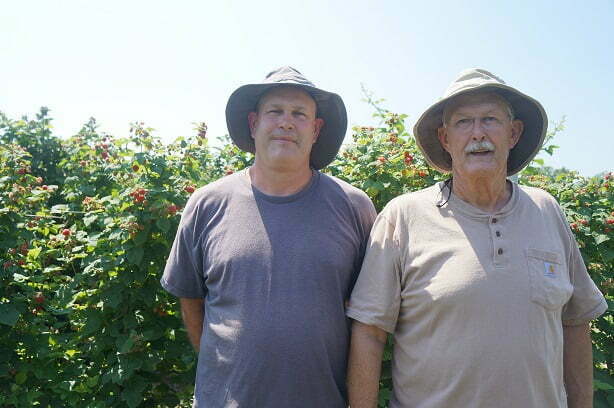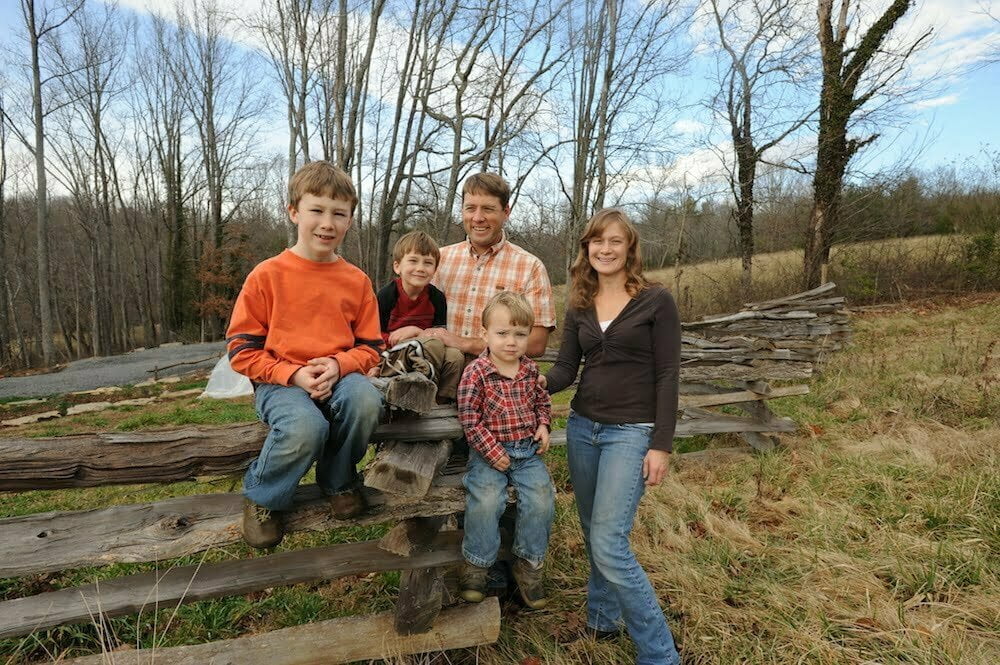One farm family working to sustain farmland and feed our WNC communities are the Stepps of Stepp’s Plants. Stepp’s is a third-generation farm in Flat Rock (Henderson County). They grow and sell bedding plants, vegetable plants, hanging baskets, roses, shrubs, and fresh asparagus in the spring. During the summer and fall, they grow raspberries, blackberries, and blueberries.
“This was my grandfather’s land for more than 40 years,” Larry Stepp shares. “I’ve been growing on the farm for about 10 years now, and I’ve farmed full-time since 2007.”
Larry’s father and grandfather grew apples, but Larry says that he and his family—like many of WNC’s creative farmers—have reinvented the farm:“We’re doing a different adventure. Apples have such a great water need. With berries and asparagus and such, it’s smaller acreage, but more productive.” Responding to the changing environment of both the area’s climate and consumer demand, the Stepps have transformed their business and carved out a place in new, local markets, including distributors such as Mountain Food Products and restaurants like Early Girl Eatery.
Larry’s father, Larry Sr., says, “I could have sold this farm for $35,000 per acre, but no way. It was important for me to keep it in my family for my son and my grandkids.” The global food market puts a lot of pressure on farmers to grow large quantities of food. Local food systems, on the other hand, provide an opportunity for local farmers to make production choices supportive of communities’ environmental conditions and residents’ values.
 Another farm, Hickory Nut Gap Farm, similar to the Stepps, has been a cornerstone of WNC’s local food scene for generations. Now run by the family’s fourth generation, owners Jamie and Amy Ager have vastly expanded the family operation in Fairview (Buncombe County). With a history dating back to 1916, today the farm produces grassfed beef, pastured pork, pastured poultry, and apples.They also now offer you-pick pumpkins, blackberries, blueberries, and raspberries to an ever-growing number of area residents and visitors dedicated to local and farm-fresh food. In the fall, the farm is buzzing with school groups from the surrounding counties.
Another farm, Hickory Nut Gap Farm, similar to the Stepps, has been a cornerstone of WNC’s local food scene for generations. Now run by the family’s fourth generation, owners Jamie and Amy Ager have vastly expanded the family operation in Fairview (Buncombe County). With a history dating back to 1916, today the farm produces grassfed beef, pastured pork, pastured poultry, and apples.They also now offer you-pick pumpkins, blackberries, blueberries, and raspberries to an ever-growing number of area residents and visitors dedicated to local and farm-fresh food. In the fall, the farm is buzzing with school groups from the surrounding counties.
Jamie and Amy recognize that their customers want to be engaged with where their food comes from and how it is grown, so they actively promote and share their farm story, daily work, and farm heritage with the community. As Jamie says, “Our mission is to connect people to agriculture. You can come to our farm and see agriculture in action and learn about what happens on a farm and see what the day-in and day-out of a working farm is.” For this farming family, the local food system is about more than profits. They work each day to supply customers with healthy, humanely raised products that they can feel good about eating. Their work is also about supporting a legacy of feeding families, leading the community, and actively shaping the world they want our children to grow up in.
Farmers like the Agers and Stepps demonstrate that a vibrant local food system is about more than moving goods. It is about building lasting relationships within the greater community and responding to changes as they come up, whether that be shifts in weather or people’s increased desire to engage with the food system. In both cases, these local farms have succeeded precisely because they value and are connected to the communities they live in and have dedicated themselves to maintaining and building that value for generations of residents to come.


